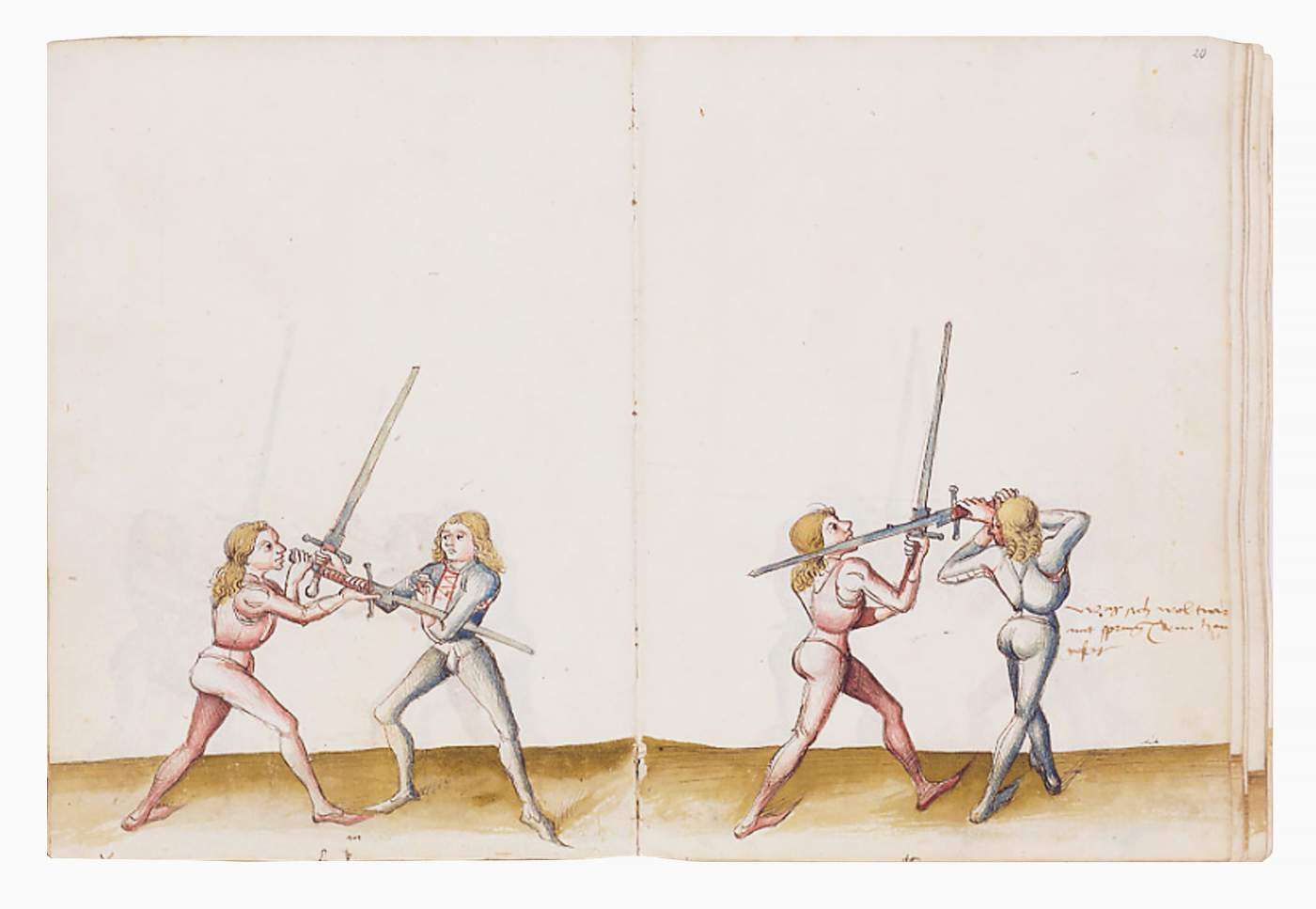-
Artworks
 CloseFencing treatise, c. 1490Illustrated manuscript on paper.218 x 158 mm. – 223 leaves. With 358 pen-and-ink drawings.Hide caption
CloseFencing treatise, c. 1490Illustrated manuscript on paper.218 x 158 mm. – 223 leaves. With 358 pen-and-ink drawings.Hide caption




 Fencing treatiseSouthern Germany, Augsburg, c. 1490SoldThe manuscript represents a fencing treatise, illustrated with 358 pen-and-ink drawings complemented by a few brief notes, which was created as a compilation from several sources, in succession to the teaching established by the fencing master Johann Liechtenauer.Illustrated manuscript on paper.218 x 158 mm. – 223 leaves. With 358 pen-and-ink drawings.3of 3NextA comprehensive introduction into the art of fencingOverview
Fencing treatiseSouthern Germany, Augsburg, c. 1490SoldThe manuscript represents a fencing treatise, illustrated with 358 pen-and-ink drawings complemented by a few brief notes, which was created as a compilation from several sources, in succession to the teaching established by the fencing master Johann Liechtenauer.Illustrated manuscript on paper.218 x 158 mm. – 223 leaves. With 358 pen-and-ink drawings.3of 3NextA comprehensive introduction into the art of fencingOverviewThe present manuscript is composed of three parts: The first part contains a treatise on fencing with the longsword, with a knife, with a dagger and fencing on horseback. The second part deals with combat fencing of men in armour, in particular with weapons in the form of rods or bars, but also with depictions illustrating Franconian fighting right. The third part can be identified as an incomplete transcript from a manuscript in Krakow belonging to the so-called Gladiatoria group.
As a general rule, the 358 pen-and-ink drawings of fencing, fighting and wrestling men are placed in the lower half of the paper leaves, while the upper half of the leaves is blank. It is conceivable that this area was meant to be filled with text. The washes were employed with varying degrees of intensity. In the shaded parts the colouring is opaque, while in areas on which the light falls the colour is applied in semi-transparent layers so that the shade of the paper is still visible, or these areas are left blank.
The colouration serves in the first place as a means to tell the figures apart, which all have blond hair and the same, uniform facial features. In most illustrations one of the fighting men wears red clothes, whereas the other one is dressed in blue. The postures, which often do not accord with human anatomy and could hardly be performed in real life, suggest that the artist or artists rather aimed at a precise pictorial explanation of the various steps, techniques and positions than at a correct rendering of human anatomy. Nevertheless, the interest is evident the artists take in lending a sense of plasticity and volume to the figures by capturing the effects of light and shade.
This work is now in the collection of Musée de Cluny in Paris.



